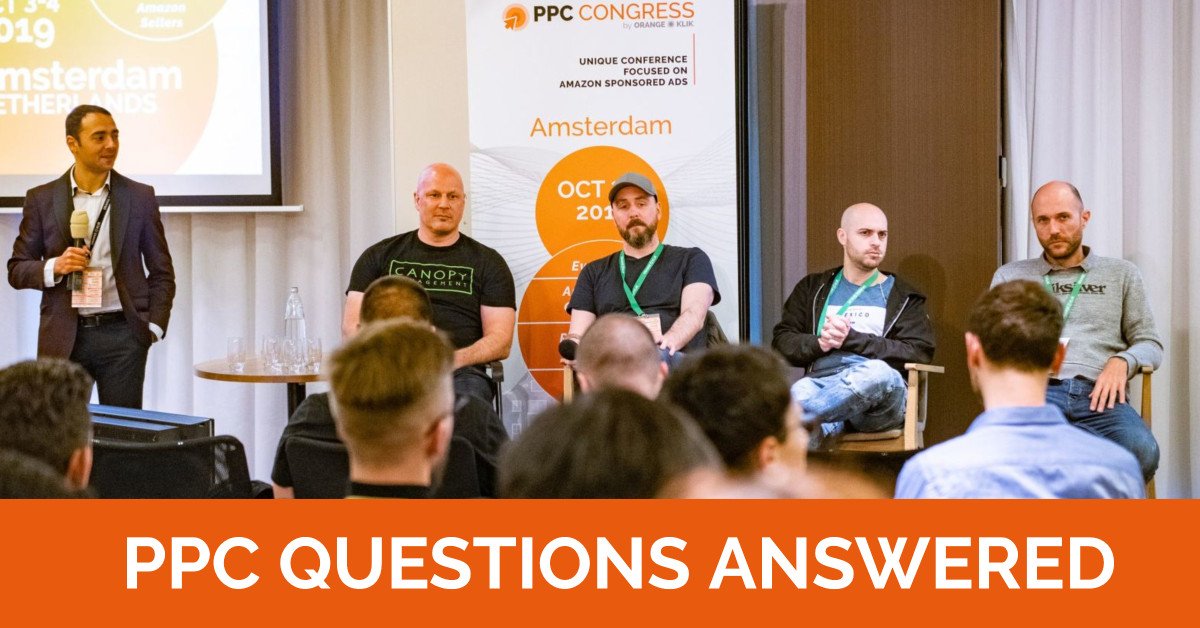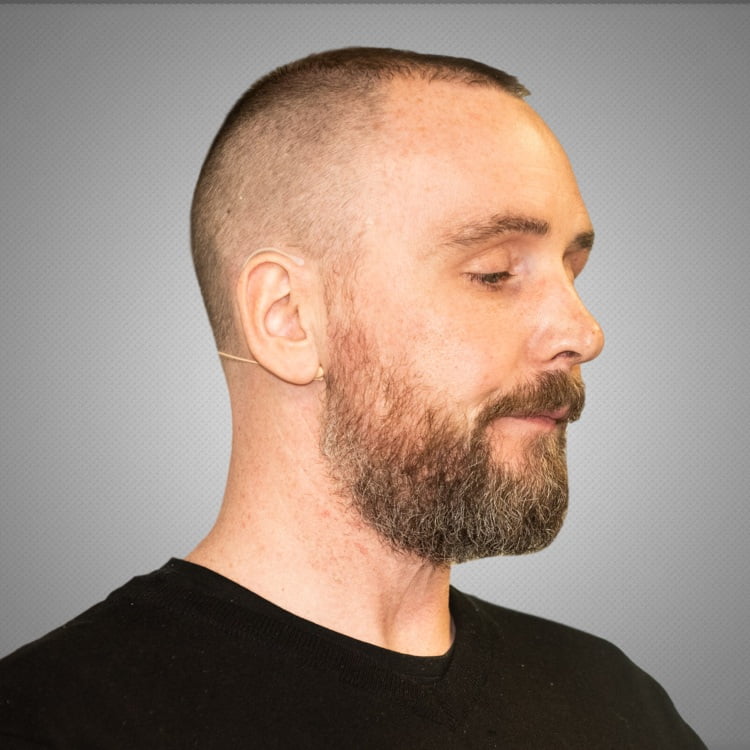Amazon PPC never gets old. And the reason behind it is clear - without a proper PPC, you won't be visible on Amazon. In this video, Amazon PPC experts Brian R. Johnson, Danny McMillan, Liran Hirschkorn and Stefano Starkel discuss and answers the most common questions about Amazon PPC.
This panel discussion was held during the PPC Congress 2019 in Amsterdam on October 3-4, 2019.
List of topics covered in the video:
03:17 Amazon quality score
10:30 Advice for European sellers on how to handle five separate marketplaces in terms of PPC management
14:49 Importance of having native listing translator
17:45 Different product images for different marketplaces
21:56 How do you go for launching a product for PPC on the market that you have never been before?
23:08 Transitioning keyword migration versus keyword testing and keyword match testing
26:56 The disconnect between data on different reporting platform - API
31:36 Are advertising clicks counted as sessions or not inside of business reports?
33:07 Does position percentage include PPC and organic?
JUMP TO THE SPECIFIC TOPIC IN THE BLOG POST:
What are the best ways to manage your keywords?
Even though there are many conflicting opinions on this, Brian thinks Amazon wants to show advertising for about 150 to 200 keywords. And so, generally, what we see is it doesn't matter how many keywords you have in an ad group. It's more about how many keywords you have in total to your marketing for a product. Amazon is going to pick and choose which ones are going to show based primarily on relevance to the product.
Meanwhile, what Liran tends to do is to group keywords in one campaign, but he will also watch for high volume keywords. So if there's a high volume keyword that's pulling a lot of the budget and it might be that the other keywords don't get a chance, he'll separate those out into some high volume keyword campaigns. He might move them separately, but otherwise he tend to group them together.
Danny adds that the other thing that he's noticed as well is that, for instance, in some campaigns, you've got keywords that never seem to enter the impressions. When you start them in that clung campaign and run those, impressions start on those keywords, but not on the main keywords if it's got a long, good standing campaign history. So it's most likely keywords that didn't work before would suddenly start working because they're in the fresh campaign in the opposing campaigns.
The importance of having a native translator
When it comes to translation, you should use native translators. Brian says they don't use any kind of translation software and certainly don't use Amazon translated listings. Instead, they have in-country translators who understand the language, understand the culture, so that they can match up the relevance and align the keywords that they're targeting, based on locality.
In Danny's opinion, the biggest problem that most people have is when they come out US marketplace the EU. They think their product is ubiquitous, they get there and then their sales drop. They may just do well in Germany or in the UK, which is fine. It goes back to the 80/20 rule. At the markets where your products are going to work, you need to get your listings translated properly. So then you handpick the top 5% performers and test those first because the biggest problem people do is they go and use a cheap translation company. What happens is they won't convert to and what people do is they fraud. So Danny would always suggest - do one listing per marketplace.
How do you go for launching a product for PPC on the market that you have never been before?
To say it shortly - aggressive bids, phrase match, exact match, it's already a good start. Liran elaborates on that a bit more - he thinks that when entering a new marketplace, you want to be aggressive. Because new ASINs are easier to rank. So whether that means you'll do auto broad phrase, exact all match types, just be very, very aggressive. Run it for at least a week, also run a reverse ASIN on your listing, see what keywords you're ranking for. And then see if you need to give them another push. Also you want to get reviews through this process so that you can kind of maintain the rankings once you get them.
About the speakers:
Danny McMillan
Host of Seller Sessions
Danny is the host of Seller Sessions, the largest podcast for advanced Amazon sellers. A world-renowned public speaker and veteran Amazon Seller, Danny is also the co-founder of DATAbrill. Working alongside respected algorithm expert Dr. Ellis Whitehead, DATAbrill manages PPC and advertising automation for 6, 7 & 8 figure Amazon brands.
He also works with Amazon HQ in the UK, he was head hunted to provide webinar content for the 3rd party sellers on the platform. He is the host of Seller Sessions Live the summer conference for Amazon Sellers and brands. He is the founder of SellerPoll the annual awards for the Amazon FBA community.
Danny is on the road speaking on a regular basis, in September and October (2019) alone he covered London, Brighton, Lithuania, back to London. Then Romania, Birmingham and Amsterdam, all in the same week. Finishing October off with Manchester, China and Hong Kong. In November Danny was a headline Keynote speaker at the White Label Expo at the Excel in London.
2020 is already looking busy with London, Prague, Estonia, Bulgaria and Vegas in the diary.
Brian R. Johnson
Founder of Canopy Management
Although affectionately known as the “Brain in the Jar”, he is anything but. Brian is a driving force in the eCommerce world. Not only has he achieved success as an online seller, but he has become the Leading Strategist in Amazon Pay-Per-Click Advertising.
Over the course of his career, Brian has founded: the Amazon PPC Troubleshooting community, Amazon PPC Consulting Association, PPC Scope ad management software, Sponsored Products Academy training course, and Canopy Management advertising agency for million-dollar brands.
Liran Hirschkorn
Partner at Amazing Freedom
Chris Rawlings first stepped into the eCommerce realm after a spinal injury inspired him to create a brand of spinal health products. Coming from a technical background, Chris designed his own products & built his personal care brand into an international success on Amazon.
With brands reaching out to him for help in figuring out the highly competitive Amazon landscape, Chris facilitated over 1,500 product launches and listing optimizations while helping over 400 companies dominate Amazon’s US, EU, and Japan markets, which lead to the founding of Sophie Society in 2019. Sophie is an Amazon service provider unlike any other, built on scientific principles and truth-finding via a constant feedback loop.
Stefano Starkel
Co-Founder and CEO @ Zon.Tools
Online Entrepreneur leveraging Google Adwords PPC since 2011 and Amazon Seller across multiple markets since 2014, he’s the strategist and ideator behind Zon Tools engines. He has participated and presented at several high-profile Amazon “PPC” Focused masterminds and events. Stefano developed what became the company’s proprietary algorithm to leverage PPC keywords data exclusively for his own Amazon business, which started in 2014 and by 2018 had grown into a 10-figure enterprise.
In 2017, he made the solution available to the public in a simple SaaS interface capable of optimizing billions of search terms and keywords, connecting buyers with sellers in a variety of markets.
Now a leading Amazon advertising optimization platform, Zon.Tools helps retailers, brands and agencies all over the world grow revenue and increase profitability selling on Amazon.
The event was moderated by Alex Chernenko:
Alex Chernenko
Company Formation Agent, Owner of Chern & Co Ltd.
Alex helps to start new and growing existing businesses easy, accessible and affordable. He manages own Amazon Private Label account understanding the pains and requirements of e-commerce sellers. His company Chern & Co provides business registration, tax advice and accounting services to European and non-European residents who require an Irish based company.







